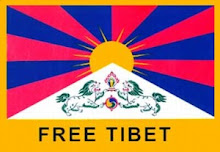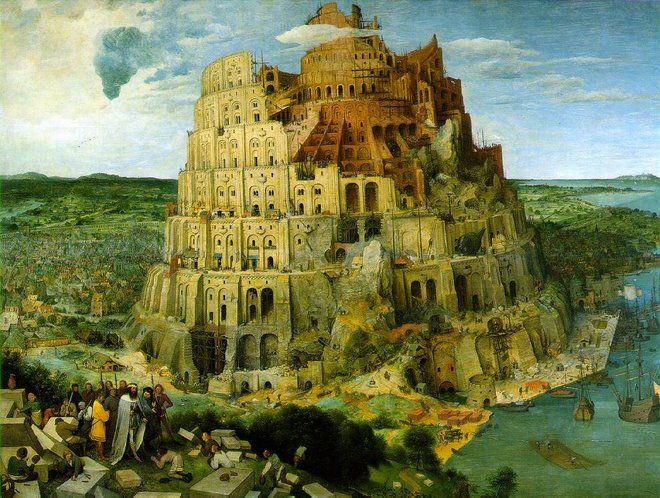 Thanx to Martin aka Ravalomanana, I can post you this wonderful and joyous anthology devoted to the rich musical traditions of the Merina County, around Tananarive, in the heart of Madagascar island. Many thanx, Martin!
Thanx to Martin aka Ravalomanana, I can post you this wonderful and joyous anthology devoted to the rich musical traditions of the Merina County, around Tananarive, in the heart of Madagascar island. Many thanx, Martin!
 Le cinquième album d’une série consacrée à l’exploration de différentes régions de Madagascar (dans la même collection, des enregistrements des pays Antandroy, Bara, Mikea et Masikoro) est dédié aux traditions musicales de l’ethnie Merina, province de Tananarive. Ce survol donne une idée très vivante de la diversité de la musique malgache. Admirablement pensée, cette sélection présente les principaux instruments de l’île sous plusieurs angles, seuls ou en groupes, au travers de situations variées. Tout en découvrant la richesse de la palette offerte, on ne peut s’empêcher d’apprécier l’unité profonde qui se dégage de l’ensemble. De récentes productions Buda […] faisaient entendre la valiha – l’instrument symbole de Madagascar – en ses variantes marovany ou bien encore plus modernes, diatoniques ou chromatiques, mais non sous son aspect originel idiocorde (les "cordes" de la toritenany sont des lanières levées à même l’écorce du tronçon de bambou qui lui sert de caisse). Alors que l’on entend la première en duo avec une "mandoline" au son cristallin (kabôsy), abandonnées à la fantaisie d’une mélodie enjouée typique du répertoire de la valiha, la sonorité claire et boisée de l’ancêtre la situe presque dans le voisinage sonore de la sanza africaine pour évoquer la danse d’un oiseau avec une finesse éloignée de toute imitation servile. Une pièce pour violon seul lui fait écho, qui adopte la même distance d’un art conscient de soi à l’égard du thème naturel du vent.
Le cinquième album d’une série consacrée à l’exploration de différentes régions de Madagascar (dans la même collection, des enregistrements des pays Antandroy, Bara, Mikea et Masikoro) est dédié aux traditions musicales de l’ethnie Merina, province de Tananarive. Ce survol donne une idée très vivante de la diversité de la musique malgache. Admirablement pensée, cette sélection présente les principaux instruments de l’île sous plusieurs angles, seuls ou en groupes, au travers de situations variées. Tout en découvrant la richesse de la palette offerte, on ne peut s’empêcher d’apprécier l’unité profonde qui se dégage de l’ensemble. De récentes productions Buda […] faisaient entendre la valiha – l’instrument symbole de Madagascar – en ses variantes marovany ou bien encore plus modernes, diatoniques ou chromatiques, mais non sous son aspect originel idiocorde (les "cordes" de la toritenany sont des lanières levées à même l’écorce du tronçon de bambou qui lui sert de caisse). Alors que l’on entend la première en duo avec une "mandoline" au son cristallin (kabôsy), abandonnées à la fantaisie d’une mélodie enjouée typique du répertoire de la valiha, la sonorité claire et boisée de l’ancêtre la situe presque dans le voisinage sonore de la sanza africaine pour évoquer la danse d’un oiseau avec une finesse éloignée de toute imitation servile. Une pièce pour violon seul lui fait écho, qui adopte la même distance d’un art conscient de soi à l’égard du thème naturel du vent.
La flûte sodina, une autre merveille de l’île, est ici jouée par quelques-uns de ses maîtres actuels, dont le fameux Rakotofrah. En duo, elle se livre à des chassés-croisés sautillants et asymétriques, mais on la retrouve aussi au sein d’ensembles encadrés de percussions où les mélodies s’imbriquent, savamment tuilées en un kaléidoscope fascinant qui peut évoquer les chants Pygmées. Seule ou accompagnée, la sodina ressemble au ney arabe à qui elle emprunte à la fois douceur et âpreté. Ce mélange étonnant d’influences asiatiques, arabes et africaines est tout le charme des musiques malgaches que de fréquentes cadences harmoniques occidentales rendent étonnamment proches de nous. La belle richesse ornementale du solo de Nicolas Rakotovao témoigne d’une grande maturité stylistique. Tout de grâce et de gaîté, ces pièces ne s’attachent pourtant pas qu’aux moments les plus heureux de l’existence; la musique semble avoir pris le parti de n’être pas l’esclave des passions tristes pour, au contraire, apporter la joie qui manque au réel. Un mouvement continu de danse les anime et les relie de son frisson vital. La nostalgie, le mal du pays, la souffrance des jours, les suppliques et les cérémonies funèbres comme le "retournement des morts", s’accommodent de mélodies entraînantes, d’allures légères. La danse embrasse sans les opposer la vie et la mort en son éternel mouvement.
L’autre dimension essentielle de la pratique musicale, vocale cette fois, est celle d’une sagesse qui se fait volontiers sentencieuse (ainsi procède la poésie des hains-tenys). Le grand genre de Madagascar, c’est le hiragasy, une sorte de théâtre populaire qui inclut la danse et la musique en un spectacle total donné sur les places de villages où chacun tient un rôle costumé. Il livre un message social et religieux compris de tous. Tout s’y est incorporé, des fanfares européennes aux instruments autochtones. Essentiellement homophonique, il scelle le sentiment communautaire en le donnant en représentation; un extrait raisonnable donne une idée de ce qui peut durer des heures. Mais ce survol ne serait pas complet sans quelques jeux d’enfants dont l’un s’accompagne du tambour de terre, surprenant dispositif dans lequel un trou creusé dans le sol sert de caisse de résonance. Prises ainsi entre la rumeur de la terre et la lumière du chant du coq, ces voix d’enfants acquièrent une portée symbolique d’autant plus belle qu’elle est captée au cœur même de la réalité. De cette réalité qui maltraite terriblement, on ne le dit pas assez, cette terre qui a trouvé ainsi, dans son art, le moyen de dédaigner son mal. Dans la joie. (P.-L. Renou, chronicart)
Link in comments
Tracklist: http://rapidshare.com/files/21594585/PMT.rar.html
Your contribution is always welcome!!
 «Marabi is the independant label created in 2002 by Christian Mousset, director of the Festival Musiques Métisses d'Angoulême in France.The festival, place of exchange and discovery, is widely opened to urban popular musics from the African Continent, Indian Ocean, the Caribbeans, America. Marabi is mainly a discographic extension of this event. On the same artistic line, the label puts upcoming artists forward as well as patrimonial leading figures. Marabi is the name given to the South African Jazz born in the townships of the thirties.
«Marabi is the independant label created in 2002 by Christian Mousset, director of the Festival Musiques Métisses d'Angoulême in France.The festival, place of exchange and discovery, is widely opened to urban popular musics from the African Continent, Indian Ocean, the Caribbeans, America. Marabi is mainly a discographic extension of this event. On the same artistic line, the label puts upcoming artists forward as well as patrimonial leading figures. Marabi is the name given to the South African Jazz born in the townships of the thirties.


















